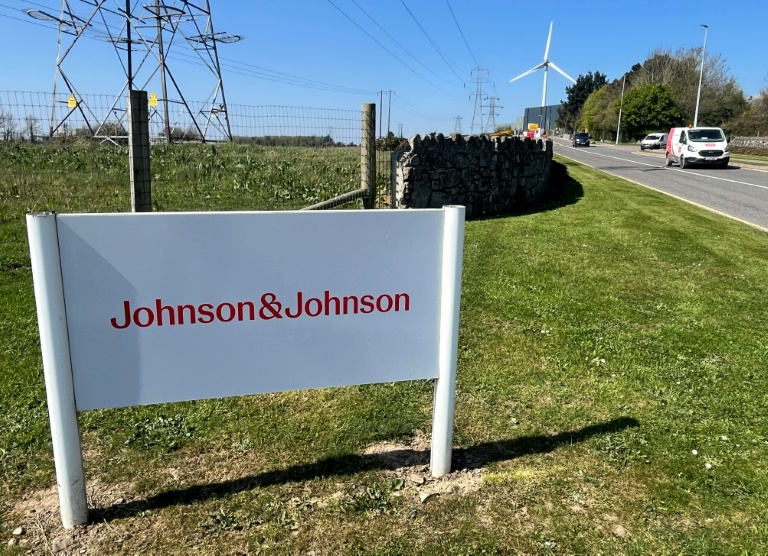A sign for US pharmaceutical giant Johnson and Johnson in Ringaskiddy, near Cork, southern Ireland, an area which has attracted many US pharma giants in recent years (Peter MURPHY)
The deal between the United States and the European Union may have averted a transatlantic trade war, but worries persist in Ireland where crucial sectors are dependent on US multinationals.
Attracted primarily by low corporate taxes, huge pharmaceutical firms like Pfizer, Eli Lilly, and Johnson & Johnson, and tech giants like Apple, Google, and Meta have based their European headquarters there.
The US investor influx has boosted Irish tax coffers and fuelled record budget surpluses in recent years.
But President Donald Trump’s tariffs — a baseline rate of 15 percent on EU exports will apply across the board — present a stress test for the Irish economic model.
Once one of western Europe’s economic laggards, Ireland became known as the “Celtic Tiger” thanks to a remarkable turnaround in the 1990s.
A model built on low corporate tax and an English-speaking workforce in an EU country proved seductive to foreign investors, particularly from the US.
Their presence drove rampant economic growth and would later help Ireland rebound from the financial crash of 2008.
The transition was an “Irish economic miracle,” said Louis Brennan, professor of business studies at Trinity College Dublin.
“Ireland has advanced in a matter of decades from being one of the poorest countries of northwestern Europe to being one of the most prosperous,” he told AFP.
Last year Ireland hiked its corporate tax rate from 12.5 to 15 percent after pressure from the Organisation for Economic Co-operation and Development (OECD), but still anticipates a budget surplus of 9.7 billion euros for 2025.
Ireland’s “spectacular” transformation “may have been too successful because we are very dependent in many ways on American companies,” says Dan O’Brien, director of the IIEA think tank in Dublin.
– Pharma in frontline –
Spared from the first round of Trump’s tariffs, pharmaceutical companies are now being targeted by the American administration, keen to repatriate production to home soil.
Earlier this month the US president threatened a 200 percent levy on the sector.
Irish Prime Minister Micheal Martin expressed mixed feelings at Sunday’s 15 percent deal, welcoming that “punitively high tariffs” were avoided.
But “higher tariffs than there have been” will make transatlantic trade “more expensive and more challenging,” he added.
The new 15 percent levy sealed will be “particularly unwelcome in Ireland,” O’Brien told AFP.
“The pharmaceutical industry is very large relative to the size of the economy, and in recent times around half of its exports have gone to the United States,” he said.
Story Continues
